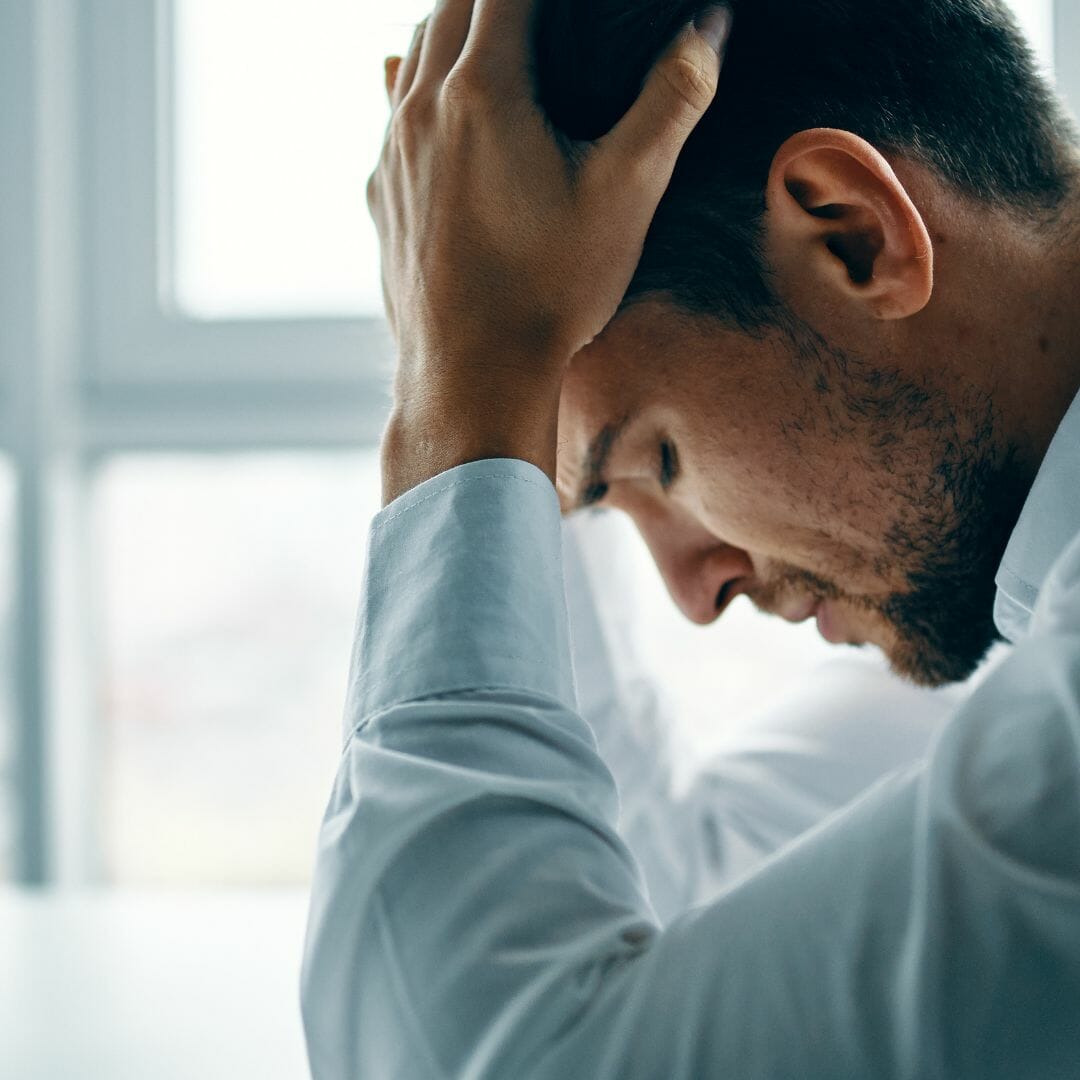Depression
Depression is a mental illness that can wreak havoc on your life as it can affect your self-esteem, relationships, ability to do your job, and more. Impacting more than 16 million Americans each year, depression is a serious illness that should be treated just as seriously. If you believe you are suffering from depression, do not hesitate to contact a PATH Integrated Healthcare clinic near you to set up an appointment. We are ready to provide the highest standard of care in a compassionate and non-judgmental manner so we can help you optimize your health.

What is Depression?
Depression is a psychiatric disorder, or a mental health illness. This disorder manifests itself through a range of symptoms, most commonly feelings of persistent and overwhelming sadness. While everyone experiences emotions of sorrow from time to time, depression causes these feelings to last longer than a few weeks.
Depression can make it difficult to participate in life and enjoy activities and relationships. It can debilitate your ability to function, and may even affect your work performance, health, and personal growth.
What Causes Depression?
Depression is believed to be caused by an imbalance in the brain of certain chemicals, called neurotransmitters. These chemicals help nerve cells send messages from one cell to another. But in depression, levels of these neurotransmitters may not work as well as they should. This can cause someone to have different problems with mood and energy, for instance. There is also some evidence that genetics, changes in the immune system, and hormones may play a role.

A variety of factors can also contribute to depression, such as:
A history of trauma or abuse
Interpersonal conflict
Genetics
Certain medications
Social isolation
At least one in four adults will have depression sometime during their lives. Women are 70% more likely to develop depression than men and some ethnic groups seem more vulnerable than others. African-Americans, for example, have higher rates of clinical depression than Caucasians do. However, it is important to understand that while some people may be at a greater risk of developing this illness, some people can experience depression during a specific time in their lives. Major life events, like marriage or retirement, can even trigger episodes of depression due to high-stress levels. Still, sometimes depression can arise without an apparent cause.
What are the Symptoms of Depression?
Depressive disorders can affect everyone differently, and symptoms can range in severity.
The most common symptom is a persistent feeling of sadness. Other symptoms can include:
Lack of energy
Loss of appetite or overeating
Sleeping problems or sleeping too much
Social withdrawal
Irritability
Headaches
Inability to think clearly
Feelings of guilt or worthlessness
Constipation or other digestive issues
Recurrent thoughts of death or suicide
If you have five or more of these symptoms recurring during most days of a two-week period, it’s important to seek help from a depression or mental health professional. Contact our medical professionals at PATH Integrated Healthcare for help with your next steps.
If you are having thoughts of suicide, the National Suicide Prevention Lifeline is available for calls 24 hours a day, 7 days a week. Please call them at 1-800-273-8255 for free and confidential support for people in distress, prevention and crisis resources for you or your loved ones.

When to see a doctor
- If you have symptoms of depression for most days of a two-week period, it's important to seek help from a depression or mental health professional.
- If you have been having symptoms of depression for less than two weeks, you may want to wait and see if your symptoms get better on their own before seeking help. However, if your symptoms are: If you feel suicidal or hopeless You can't sleep, eat or enjoy previously pleasurable activities.
- If you think you may hurt yourself; if you have a plan and the means to carry out this plan; if your family and friends are worried about how much you drink, do drugs or engage in other self-destructive behaviors If your feelings of depression began after a significant stressor or loss, your depression may have turned into something more serious known as post-traumatic stress disorder (PTSD).
- If you have been diagnosed with depression and are not getting better with treatments.
- If your symptoms of depression get worse over time.
Diagnosis and Tests
Depression is often difficult to diagnose. In fact, it’s estimated that 50% of people with depression are misdiagnosed up to eight times before receiving the correct diagnosis.
It is important to see diagnosis from a behavioral health professional like those at PATH.


How is Depression Treated?
Treatment for depression generally requires a combination of medication and some form of psychotherapy, such as cognitive-behavioral therapy. The goal of therapy is to help patients learn how to adjust their thoughts and behaviors in ways that can lift their moods on a consistent basis.
Antidepressant medications balance levels of neurotransmitters in the brain, which help to elevate mood or alleviate feelings of sadness. These can take up to six weeks to begin working, so physicians usually recommend that patients continue the medications for at least six months. There are several types of antidepressants available, which differ in terms of safety and strength, and may help against other disorders such as anxiety. Many patients with depression respond well to antidepressants and other prescription medications, but medication is not always necessary to resolve depression.
If you have already tried treatment options in the past without success, talk to a medical professional about transcranial magnetic stimulation.
Prevention
Depression is very treatable, and most people who have depression can be helped. The first step is to visit a doctor or mental health professional and explain your symptoms in detail. Your doctor will likely perform a physical exam and ask about your medical history to rule out physical causes for your symptoms.
If you are diagnosed with depression, the doctor will work with you to develop an individualized treatment plan.


Support and resources
- https://www.understood.org/en/learning-attention-issues/child-learning-disabilities/childhood-depression
- https://www.mentalhealthamerica.net/conditions/postpartum-depression
- https://www.nimh.nih.gov/health/publications/living-with-bipolar-disorder/index.shtml
- https://www.mentalhealthamerica.net/conditions/generalized-anxiety-disorders?module=steps_parents
- https://www.nami.org/Learn-More/Mental-Health-Conditions/Depression-Information
- https://www.mayoclinic.org/diseases-conditions/depression/symptoms-causes/syc-20374317
- http://www.webmd.com/depression/guide/major-depressive-disorder?page=2
Contact a Clinic Today
Do not wait to seek help for depression. Our team at PATH Integrated Healthcare provides high-quality, innovative behavioral health treatment via strength-based solutions and positive approaches to care. Contact one of our clinics in Ohio, Louisiana, or Utah to start your path to optimized health today!
